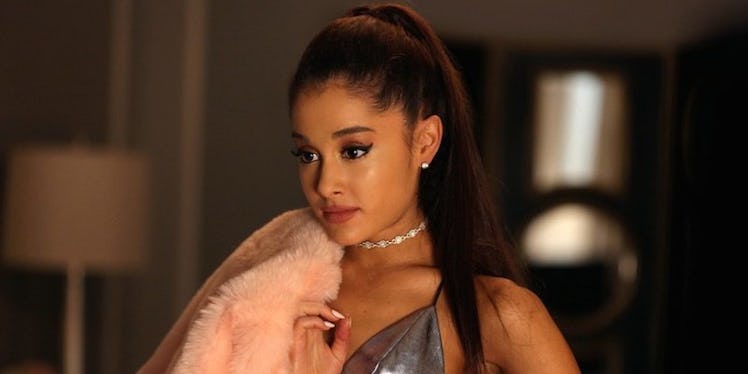
How Ariana Grande's Response To Sexism Defines A New Era For Pop Stars
“If you could use your makeup or your phone one last time, which one would you pick?”
This is the hard-hitting question pop sensation Ariana Grande was faced with while she was promoting her new hit single, “Focus."
As the interview went on, it didn't get any better.
Women are the punch line of every joke.
We are not as smart, and apparently, our words don’t matter as much.
When Grande tried to combat the question and teach the radio hosts a little something about equality and feminism, they laughed at her as if what she said should be on an episode of “Kids Say the Darndest Things.”
The hosts continued by comparing and contrasting male and female emoji.
Men use food and middle finger emoji, women use clouds and unicorns.
Obviously, you’re not a real man if you use a unicorn emoji. You’re a little boy.
Grande set an example for women everywhere during this interview.
Although the hosts talked down on her in a condescending tone the whole time just because of her gender, she continued to push through, not letting their misogynistic remarks get to her.
She eventually even called one of the DJs out at the end, saying sexism needs to change, "starting with him."
Women are taught to keep their pretty little mouths shut because if they're loud and too aggressive, they will never get a man.
Being angry doesn’t earn you respect. We’re cut off and told to constantly apologize before speaking up.
But when we don’t speak up, we’re seen as submissive.
There’s no winning.
There’s no respect.
There’s no equality.
I was recently in a heated class discussion about race before I was cut off by a white man. I let him cut me off and argue his opinion. He didn't let me speak again.
Looking back at this makes me furious.
Why did I let this happen?
I had waited my turn for several minutes so I could speak my mind. Then, within seconds, what I had to say didn’t even matter anymore.
Melissa Lozada-Oliva answers my question in her powerful poem, “Like Totally Whatever”:
And it’s like maybe I’m so used to speaking in questions, ‘cause I’m so used to being cut off. It’s like maybe this is defense mechanism. Maybe everything girls do is evolution of defense mechanism.
I’m over accepting "boys will be boys" and "it is what it is." I’m starting to acknowledge that even small things like being cut off can change if I take initiative.
I am so done with being treated poorly because of what I have below the belt.
I can get into a club without having to wait in line, but that does not dismiss the years of oppression my sex has had to go through.
Pantene demonstrated to us the often overlooked female singularities in two thought-provoking commercials.
In one, the company questions why women are always apologizing, and it challenges them to eliminate "sorry" from their vocabulary.
In another, they juxtapose male and female gender biases.
Women need to know working hard doesn’t make you selfish. Taking care of your appearance doesn’t make you vain. Being a boss doesn’t make you a bitch.
This interview reminded me even women in the media have the same pressure to be likable and sweet, just so they can be accepted.
Famous singers will be patronized for being "girly."
An Oscar award-winning actress will not dispute wage inequality out of the fear she will be labeled a “spoiled brat.”
But like Grande, we need to speak up and not allow ourselves to be cut off. We need to realize our discomfort should not be accepted as a normative female lifestyle.
That does not mean we need to shove our beliefs down people’s throats and promote backward feminism with misandry.
We can all take little steps to make the world better and more equal for men and women.
It can start with not asking stupid questions or assuming the only things women care about are makeup and phones.